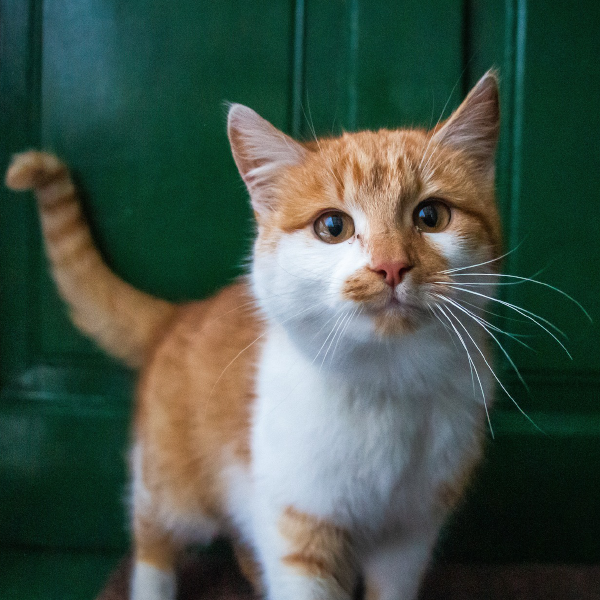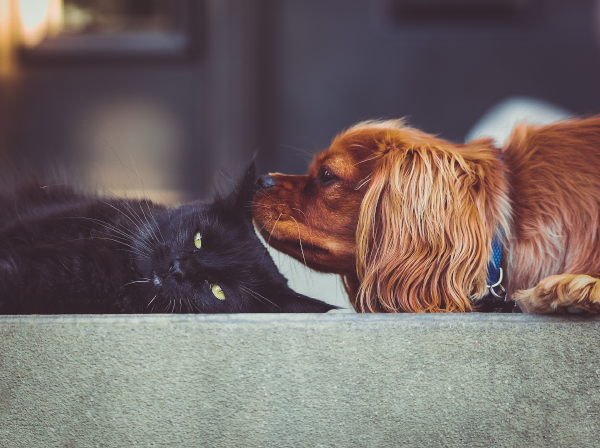Moving to Thailand with pets: everything you need to know

Flying to Thailand with a pet requires careful preparation, as the regulations for bringing animals into the kingdom are strictly defined. To avoid potential issues and ensure a comfortable journey for your four-legged friend, it’s essential to gather all necessary documents, consider transport requirements, and obtain an entry permit in advance. This guide will help you prepare for the trip, avoid delays, and make the journey as safe and comfortable as possible for your pet.
Preparation of Documents for Exporting an Animal
International Veterinary Passport
Your pet must have an international veterinary passport containing up-to-date vaccination information and complete details: photo, microchip information, name, age, breed, fur color, and vaccination records (all duplicated in English). The pet should be microchipped, and the microchip must be registered in an international database. Note that vaccinations should be administered at least 21 days before the trip, and around 10 days before vaccination, your pet needs to be dewormed.

Import Permit for Thailand
To bring a pet into the Kingdom of Thailand, you need to collect a set of documents and obtain an import permit in advance. The package includes:
- A copy of the pet owner's passport.
- The international veterinary passport with vaccination information and pet details.
- A document verifying the presence of a microchip and its number (or a sticker with the number on the passport's first page).
- A photo of the pet (passport-style).
- A pet import application form (in English), which should include the owner's contact details (full name, address, phone number, passport number), pet information (name, breed, age, microchip number), and flight details (flight number, date, arrival time, method of pet transport).
The application form can be downloaded from the official website of Thailand's Department of Livestock Development: https://dld.go.th/. Submit all documents along with the application to the department's email address: qshk_hkt@dld.go.t. In the email body, briefly describe yourself and your pet, include the microchip number, flight details, and specify whether your pet will travel in the cabin or cargo hold. Send the documents no later than 14 days before departure. Processing takes several business days, so it is advisable to apply well in advance. Print out the permit you receive and bring it with you—it's required for veterinary control at Phuket Airport and may be requested during check-in.
F1 Certificate
Within 5 days before departure, visit a state veterinary clinic to obtain an A1 certificate, which will be exchanged at the airport for an international veterinary certificate form F1 (valid for 5 days). Clinic addresses can be found online, and the certificate cost is around 15 dollars

Airline Requirements
Verify your airline’s pet travel policy: not all airlines accept animals, and it’s important to confirm requirements regarding carrier size and weight, as well as in-cabin and cargo hold options. When booking, notify the airline that you will be traveling with a pet. Usually, passengers with pets cannot be seated in aisle seats. Choose flights with minimum layover times to reduce stress for your pet. The pet must remain in a carrier or crate spacious enough to allow free movement. Inside, add soft bedding and a favorite toy, and ensure access to water (spill-proof travel bowls are useful). Avoid feeding the pet 4–6 hours before the flight but keep water available. For dogs, ensure a good walk before the flight. Consult a vet about possible use of calming tablets.
Upon Arrival in Phuket
At Phuket Airport, your pet will need to pass veterinary control. Be ready to show the international certificate, import permit, and other documents. Without a permit, the pet may be quarantined or even sent back. Veterinarians will check the microchip, pet health, and documentation. The F1 certificate will be exchanged for a new document to keep safe, as it’s required for exiting Thailand. You will also need to pay a veterinary control fee of 650 THB per pet. This check is conducted at the end of the baggage claim area.

Adaptation to the New Climate
Upon arrival, ensure your pet’s comfort: provide cool water and a shaded place to rest. Finding a veterinarian in Thailand is easy, and prices for services are usually lower than in Russia (for example, a therapist consultation costs around 100 THB).
Traveling to Thailand with a pet can be an exciting experience, but it requires close attention to all formalities. By preparing the documents in advance, following airline guidelines, and considering all recommendations, you can avoid unnecessary difficulties and stressful situations. Ensure your pet has everything they need to adapt comfortably to the new climate upon arrival, and remember that in Phuket, you will always find veterinary support and essential services for your beloved companion.
